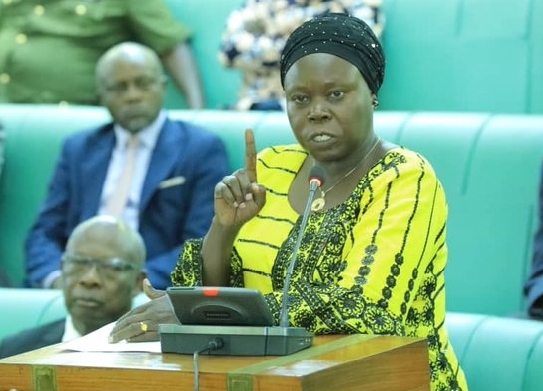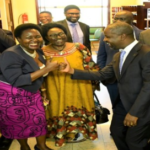The Uganda People’s Defence Forces (UPDF) Amendment Bill 2024, introduced by State Minister for defence (veterans Affairs)Huda Abason Oleru, is set to redefine the structure and governance of Uganda’s military. The bill, currently under parliamentary review, seeks to enhance the UPDF’s operational efficiency by introducing new organizational units and overhauling military justice systems.
Central to the proposal is the formal recognition of the Special Forces Command (SFC) and the Reserve Force as distinct components of the UPDF. This adjustment expands the military’s structure from three to four primary branches, complementing the existing Land and Air Forces. Historically, these forces operated without official recognition as separate branches. Their inclusion acknowledges their integral roles in addressing Uganda’s evolving security challenges.
The SFC, known for its high-profile counter-terrorism operations and critical national security roles, has been pivotal in regional stability efforts. Similarly, the Reserve Force, which consists of trained voluntary personnel, will provide crucial reinforcement during crises, such as natural disasters or wartime emergencies.
In addition to these structural changes, the bill aims to reform the military justice system by replacing the Unit Disciplinary Committees with Unit Courts Martial. This adjustment grants courts martial broader authority, including the capacity to address serious offenses committed by military personnel. The restructured system introduces multiple tiers, from Unit to Appeal Courts Martial, to ensure a comprehensive approach to justice within the military.
However, the proposal has drawn criticism from civil society organizations and legal experts, who fear the expanded jurisdiction of courts martial may encroach on civilian judicial matters. Government officials have refuted these concerns, emphasizing that the courts will remain focused on military personnel and internal discipline.
Another significant aspect of the bill is the establishment of a Joint Military Command, replacing the High Command. Chaired by the Commander of Defense Forces, this body will oversee strategic planning, coordinate operations, and advise the Commander-in-Chief. The reform signals a departure from older leadership structures tied to the National Resistance Army era, reflecting a shift toward modernization.
While proponents argue that these changes will bolster Uganda’s defense capabilities, critics caution against the risks of centralized military power and its potential to blur the lines between military and civilian oversight.
As debate over the bill continues in Parliament, its long-term implications for Uganda’s governance and security remain uncertain. Advocates of the reform view it as a necessary step in aligning the UPDF with contemporary challenges, while skeptics stress the need for safeguards to protect civilian rights.
![]()

























